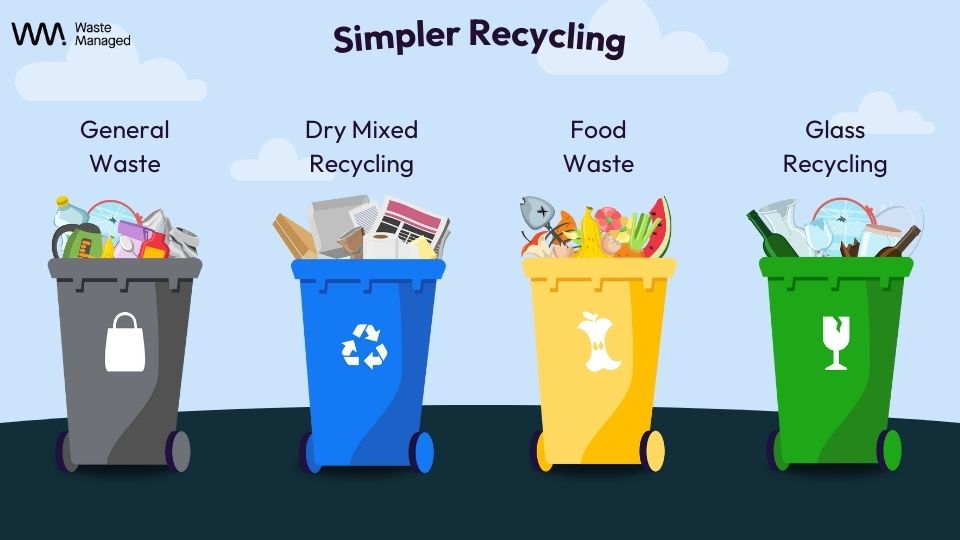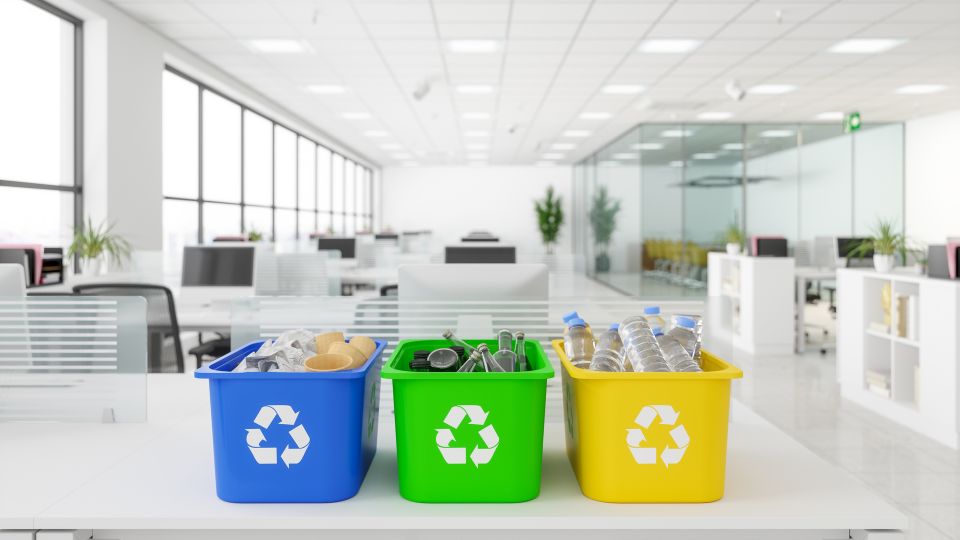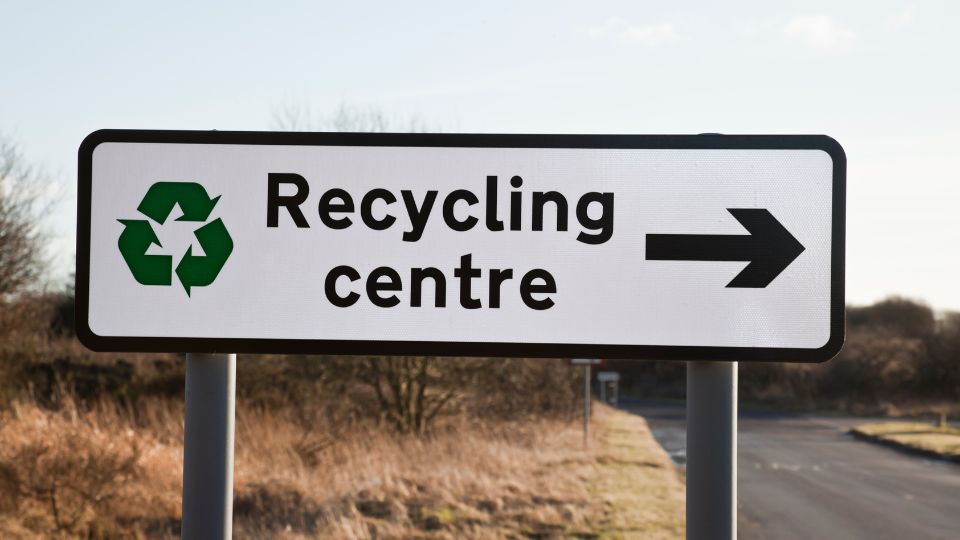
A Quick Summary
- Recycling centres use manual and advanced automated sorting technologies to process and separate materials.
- Businesses benefit from cost savings, reduced environmental impact, and enhanced compliance and reputation by using recycling centres.
- Modern recycling centres employ optical sorters, eddy current separators, air classifiers, and magnetic separators to efficiently manage waste.
Recycling centres are critical to the UK’s waste management infrastructure, helping businesses reduce their environmental impact by effectively sorting and processing recyclable materials.
For UK business owners, understanding how these centres operate can lead to more sustainable practices and potentially lower waste disposal costs.
This guide will take you through the workings of recycling centres, highlighting the processes, benefits, and technological advancements shaping the future of recycling.
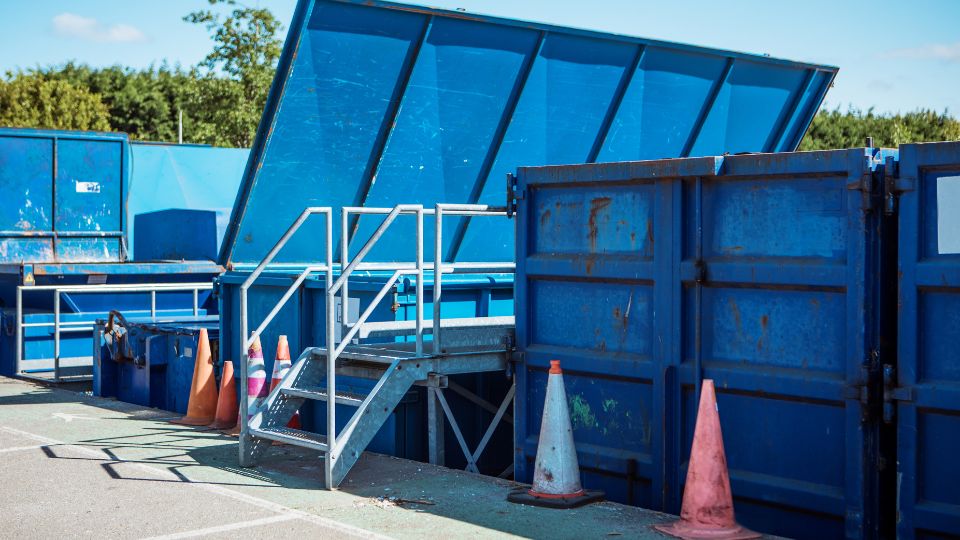
How Recycling Centres Work
1. Collection and Transportation
Recycling starts with the collection of recyclable materials from businesses.
These materials are usually separated into different categories, such as paper, plastic, glass, and metal.
Waste management companies (just like us!) provide various collection services, including bins, skips, and compactors, tailored to the volume and type of waste generated by your business.
Once collected, these materials are transported to recycling centres.
2. Reception and Initial Sorting
Upon arrival at a recycling centre, the materials are weighed and recorded.
The initial sorting involves separating large, easily distinguishable items manually.
This step ensures that non-recyclable materials are removed early in the process, reducing contamination and improving the efficiency of subsequent automated sorting stages.
You can read more about how recycling is sorted in our blog!
3. Automated Sorting Technologies
Modern recycling centres leverage advanced technologies to enhance the sorting process:
- Optical Sorters:
These machines use light to identify and separate different types of plastic based on their polymer composition.
- Eddy Current Separators:
Used to sort non-ferrous metals like aluminium from other waste streams through magnetic induction.
- Air Classifiers:
These separate light materials such as paper from heavier items like glass using airflow.
- Magnetic Separators:
Employed to remove ferrous metals from mixed recyclables.
4. Processing and Baling
After sorting, materials are processed for recycling.
For example, plastics might be shredded and melted down, while paper and cardboard are pulped.
Metals are crushed and melted, and glass is cleaned and crushed into cullet.
The processed materials are then compacted into bales, making them easier to transport to manufacturers who will use them to create new products.
5. Quality Management and Contamination Management
Quality control is essential to ensure that the recycled materials meet industry standards.
Recycling centres employ various methods, such as manual inspections and automated sensors, to detect and remove contaminants.
High-quality recycled materials can fetch better prices in the market, incentivising thorough quality control.
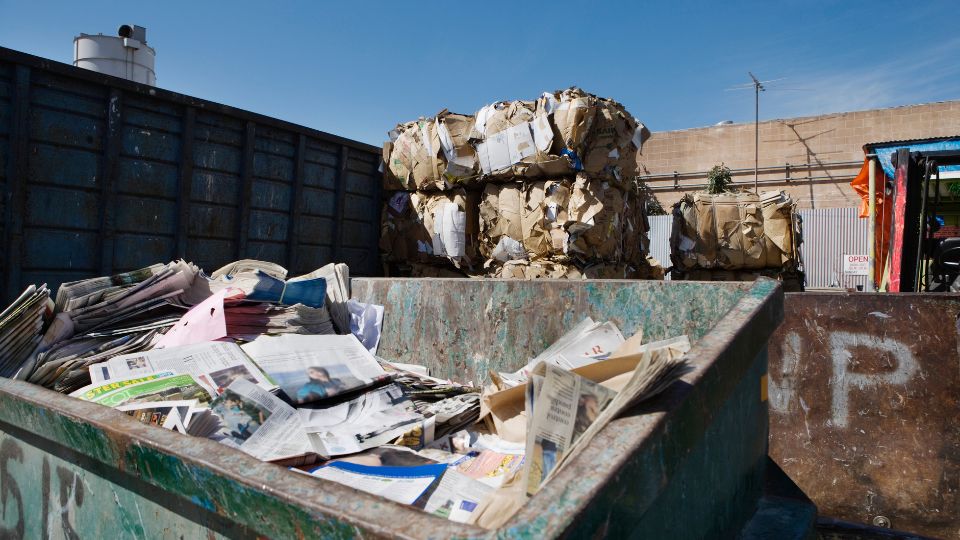
Benefits of Using Recycling Centres
For business owners, using recycling centres offers several advantages:
- Cost Savings:
Reducing the amount of waste sent to landfills can lower disposal costs and potentially generate revenue from the sale of recyclable materials.
- Environmental Impact:
Recycling helps conserve natural resources, reduce greenhouse gas emissions, and minimise the environmental footprint of your business.
- Compliance and Reputation:
Adhering to recycling regulations not only avoids legal penalties but also enhances your company’s reputation as a responsible and sustainable business.
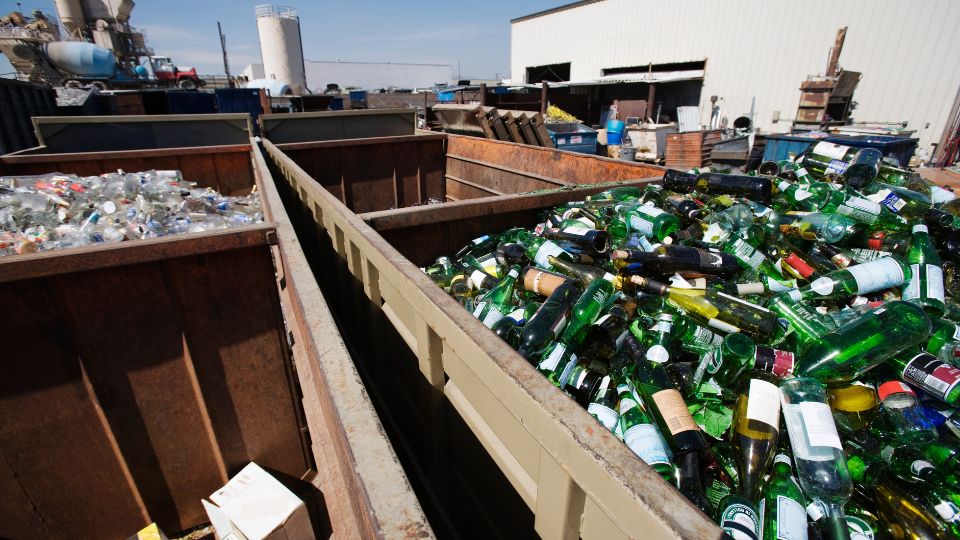
Conclusion
By understanding the operations of recycling centres, UK business owners can make informed decisions that promote sustainability, reduce costs, and enhance their environmental impact.


